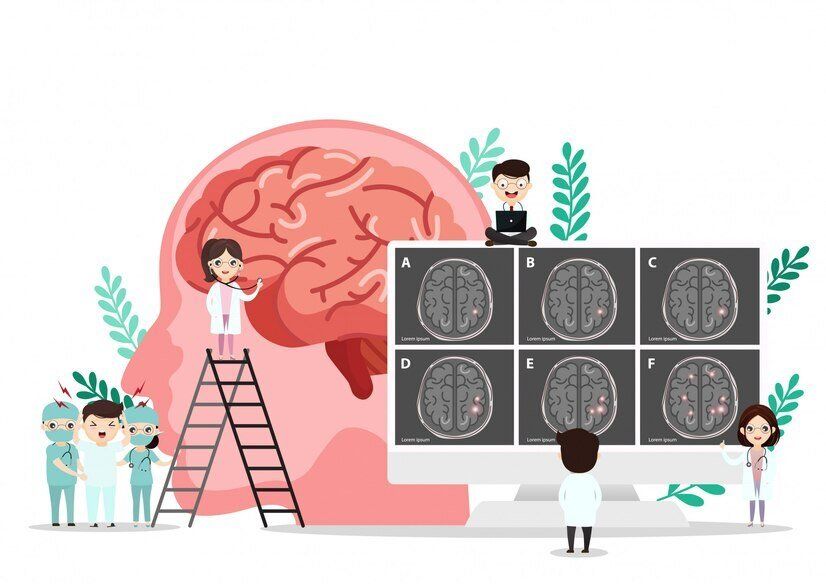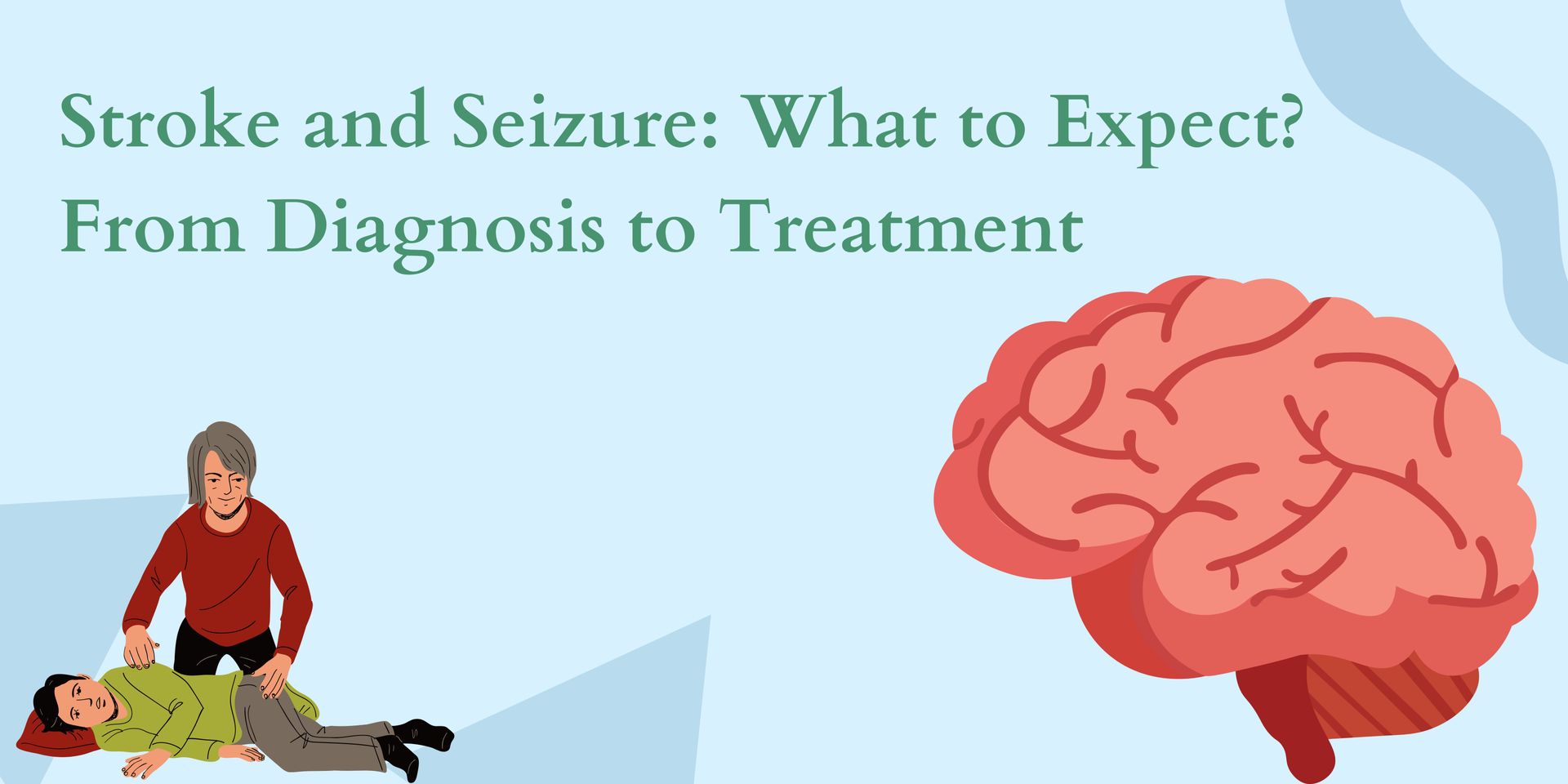Thousands of brain tumor cases are registered each year worldwide, affecting young and adults alike. Surgery is considered one of the most beneficial methods to treat brain tumors. Learn about brain tumor surgery and its potential risks and complications.
Brain tumor is defined as the collection of mass abnormal cells in the brain.
Also known as an “intracranial tumor,” the abnormal mass of tissues develops when the mechanism that controls cell division fails and leads to rapid growth and uncontrollable multiplication of cells.
The human brain is enclosed by an extremely rigid skull. Therefore, any abnormal growth inside such enclosed spaces leads to several detrimental effects.
There are many treatments available for brain-related diseases like Deep brain stimulation, Cholinesterase inhibitors, and brain tumors. There are also many brain tumor treatments available such as surgery, chemotherapy radiation therapy, etc. Brain tumors can be classified into benign or malignant tumors and the growth of these tumors puts pressure on the skull, which can lead to damage of the brain and can be life-threatening.
The risk of developing brain tumors generally increases with age. However, approximately more than 4500 cases of pediatric brain tumors are registered each year worldwide. New research has suggested that the tissues that cause brain tumors in children are different from those of adults.
Brain tumors can be categorized into primary and secondary types. Primary brain tumors originate in the brain and many of those are benign (does not spread to other parts of the body) in nature. On the other hand, the second type is known as a metastatic brain tumor. A secondary brain tumor occurs when the cancer cells that originated in some other body parts have traveled to the brain.
Primary brain tumors develop from brain cells, membranes (meninges) that surround your brain, glands and nerve cells. They can be benign or cancerous.
Unlike primary brain tumors, secondary brain tumors are not developed from the brain cells. They develop from one part of the body and then metastasize to the brain. Secondary brain tumors make up most of the brain tumor cases. These tumors are malignant and usually, cancer of the lung, breast, kidney and skin can then go on to affect the brain.
As per the National Brain Tumor Society, more than 130 different forms of brain tumours are there. Among that the most common types of brain tumors are metastatic, meningioma, glioblastoma, and astrocytoma.
Symptoms of Brain Tumor:
Mentioned down below are the common symptoms experienced by individuals affected with brain tumor.
● Moderate to severe headache that can worsen with physical activities and in the early morning
● Occurrences of motor seizures are sudden involuntary movements taking place in the muscles.
○ Myoclonic (single or multiple jerks, spasms, and cramps)
○ Tonic-Clonic (loss of consciousness and body functions)
○ Sensory (changes in vision, sensation, smell)
○ Complex partial (partial or complete loss of consciousness and repetitive, unintentional movements)
● Nausea or vomiting
● Changes in personality
● Problems while sleeping, drowsiness and general fatigue
● Temporary loss of memory
● Inability to perform daily routine tasks
● Loss of balance
● Inability to look upward
● Difficulty in swallowing
● Lactation or altered menstrual period
What Causes Brain Tumors?
Medical professionals and researchers are still unable to identify the exact cause of brain tumors. However, it is considered brain tumors arise when certain genes on chromosomes of the cell get damaged and are unable to function properly.
The genes regulate the rate of division of the cells, repair the genes and also inflict self-destruction if the damage gets beyond repair. Once the cell starts to grow rapidly and the mechanism that checks the growth gets damaged, the cells grow into a tumor.
Tumors produce angiogenesis factor that promotes the growth of blood vessels that supplies nutrients to the developing tumor.
However, specific factors increase the risk of brain tumors in certain individuals
1. Family history (5-10% tumor cases suggest genetically hereditary or inherited)
2. The risk of developing brain tumors increases with age
3. Being exposed to certain chemicals increases the risk of developing benign and malignant brain tumors
4. Individuals who get exposed to ionizing radiation are at a higher risk of developing brain tumors in later stages.
Understanding brain tumor surgery
The treatments usually prescribed for brain tumors include surgery, chemotherapy or radiation therapy.
Most medical professionals believe that the removal of brain tumors through surgery is highly beneficial for the patient. The neurosurgeon has to remove tumors as gently as possible without harming the tissues that are crucial for the normal functioning of the other nearby brain structures.
Traditionally, through craniotomy, surgeons crack open the skull for better access to the tumor and remove the tumor as much as possible. An EVD drain is left behind to drain the fluids that would accumulate while the brain recovers from the surgery.
Partial removal of brain tumors helps in reducing the symptoms and relieves the pressure created on the brain due to the tumor.
Sometimes, a biopsy can be prescribed to determine the cells of the tumor and then provide treatment accordingly. A biopsy helps in determining whether there are any other abnormalities present in the brain or not.
Neuroendoscopy is another popular brain tumor surgery method. Through the use of an endoscope, small holes are made in the skull and the endoscope is used to guide throughout the operation. This minimally invasive surgical procedure also speeds up the recovery process.
After the surgery has taken place, the patient is advised to stay in the hospital for a few days for monitoring purposes. Medical professionals check how the patient is recovering from the surgery. The development of complications like swelling and infections is considered, and proper measures are taken to keep the risks at bay.
The recovery period varies according to each patient. In some cases, it might take months before the individual is completely healed. Doctors usually specify certain do’s and don’ts according to the condition of the patient. Once discharged, the patient has to follow up with regular examinations and appointments to assess their health condition. A healthy diet with light exercise is recommended as well.
What are the benefits of brain tumor surgery?
Brain tumor surgery ensures less risk compared to other forms of treatments of brain tumors. and to conduced this surgery best hospital in the world is required With the advancement of medical technology. There are newer and less invasive forms of surgery that reduce the complications in the later stages. Procedures like biopsy can help in detecting the presence of other abnormalities and therefore, surgeries can effectively safeguard the patient against various life-threatening ailments in the future as well.
Risk Factor of Brain Tumor Surgery
The outcome of the surgery depends upon several factors, such as age, location of the tumor, and the patient's overall health. The surgeon's expertise also plays an important role in the outcome of the surgery.
Being a type of invasive surgery, brain tumor surgery may contain a lower risk of infection. However, it can still be a risk in certain cases.
Some of the potential risks that are associated with brain tumor surgery are
● Bleeding in the brain
● Swelling and infection
● Blood clots
● Development of allergic reactions to anaesthesia medications
● Seizures
● Impairment of motor skills and temporary loss of memory
Complications of Brain Tumor Surgery
Any surgery in the brain or on the spinal cord includes complications. Therefore, brain tumor surgery holds no exception.
Surgeons try to limit any complications that might occur during or after the surgery. After the surgery, to reduce the risk of swelling in the brain, drugs such as corticosteroids are provided to patients. Anti-seizure medications are also recommended to reduce the risk of seizures posts the surgery.
To decrease the risk of losing brain function, surgeons have to carefully remove the affected tissue.
To reduce the complications and boost the recovery period from brain tumor surgery, mentioned down below are certain measures:
● Stopping smoking before the surgery date as smoking increases the risk of surgical complications and can prolong the healing period
● Patients are advised not to take steroids or blood-thinning medications before surgery, which increases the risk of swelling after surgery.
Preventions
Apart from genetic imbalances, the causes of brain tumors are still unknown. However, medical professionals firmly believe maintaining a healthy lifestyle is one of the best ways to safeguard yourself from brain tumor.
● Have an adequate sleep. Sleep is essential for brain health and therefore, therefore everyone should attempt to get at least seven hours of sleep every day.
● Yoga and meditation are important tools to combat different ailments. Include breathing exercises and inhaling frankincense oil to soothe inflammation of the brain
● A rich nutrients diet is beneficial for combating cancer cells. Follow a ketogenic or diet rich in antioxidants to prevent brain tumors
● Limiting exposure to cell phones and other electronic gadgets can also prove beneficial to keep the risk of developing brain tumors at bay.
To encapsulate, surgeries are considered one of the safest ways to treat brain tumors if the tumor is small and is located in a place that can be easily accessible. Proper measures should be taken after the surgery takes place as the risk of infection and swelling remains relatively high.
Reference:
https://www.aans.org/en/Patients/Neurosurgical-Conditions-and-Treatments/Brain-Tumors
https://braintumor.org/







